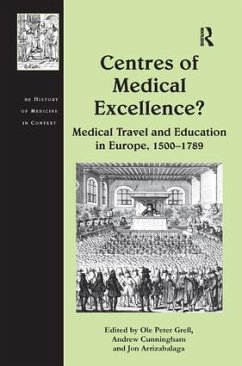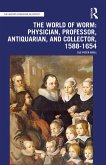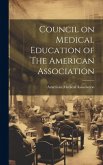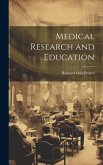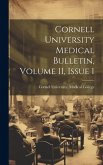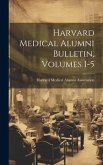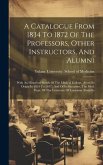Students notoriously vote with their feet, seeking out the best and most innovative teachers of their subject. The most ambitious students have been travelling long distances for their education since universities were first founded in the 13th century, making their own educational pilgrimage or peregrinatio. This volume deals with the peregrinatio medica from the viewpoint of the travelling students: who went where; how did they travel; what did they find when they arrived; what did they take back with them from their studies. Even a single individual could transform medical studies or practice back home on the periphery by trying to reform teaching and practice the way they had seen it at the best universities. Other contributions look at the universities themselves and how they were actively developed to attract students, and at some of the most successful teachers, such as Boerhaave at Leiden or the Monros at Edinburgh. The essays show how increasing levels of wealth allowed more and more students to make their pilgrimages, travelling for weeks at a time to sit at the feet of a particular master. In medicine this meant that, over the period c.1500 to 1789, a succession of universities became the medical school of choice for ambitious students: Padua and Bologna in the 1500s, Paris, Leiden and Montpellier in the 1600s, and Leiden, Göttingen and Edinburgh in the 1700s. The arrival of foreign students brought wealth to the university towns and this significant economic benefit meant that the governors of these universities tried to ensure the defence of freedom of religion and freedom of speech, thus providing the best conditions for the promotion of new views and innovation in medicine. The collection presents a new take on the history of medical education, as well as universities, travel and education more widely in ancien r¿me Europe.
Hinweis: Dieser Artikel kann nur an eine deutsche Lieferadresse ausgeliefert werden.
Hinweis: Dieser Artikel kann nur an eine deutsche Lieferadresse ausgeliefert werden.
'... an engaging and insightful volume... Although the evidence based on student responses to university life may sometimes be scant and problematic, it is to the contributors' credit to have successfully based their accounts on fresh documentary material and a subtle reading of the student records.' Renaissance Quarterly 'It is richly detailed and the scope of its component methodologies impressive, managing to balance individual case studies with broader contextual discussions... The breadth and scope of the research throughout the work is truly impressive, and it is pleasing to note that the spread of essays is truly pan-European, with no one area especially privileged... this work will doubtless make a strong contribution not only to the increasing historiography of medical education in the early modern period, but to the history of European medicine more generally.' British Journal for the History of Science '[Centres of Medical Excellence]'s real contribution is to revitalize and reorient the existing historiography on medical education by directing more attention to students and by explicating the dynamically interactive quality of learning in the early modern world.' European History Quarterly

